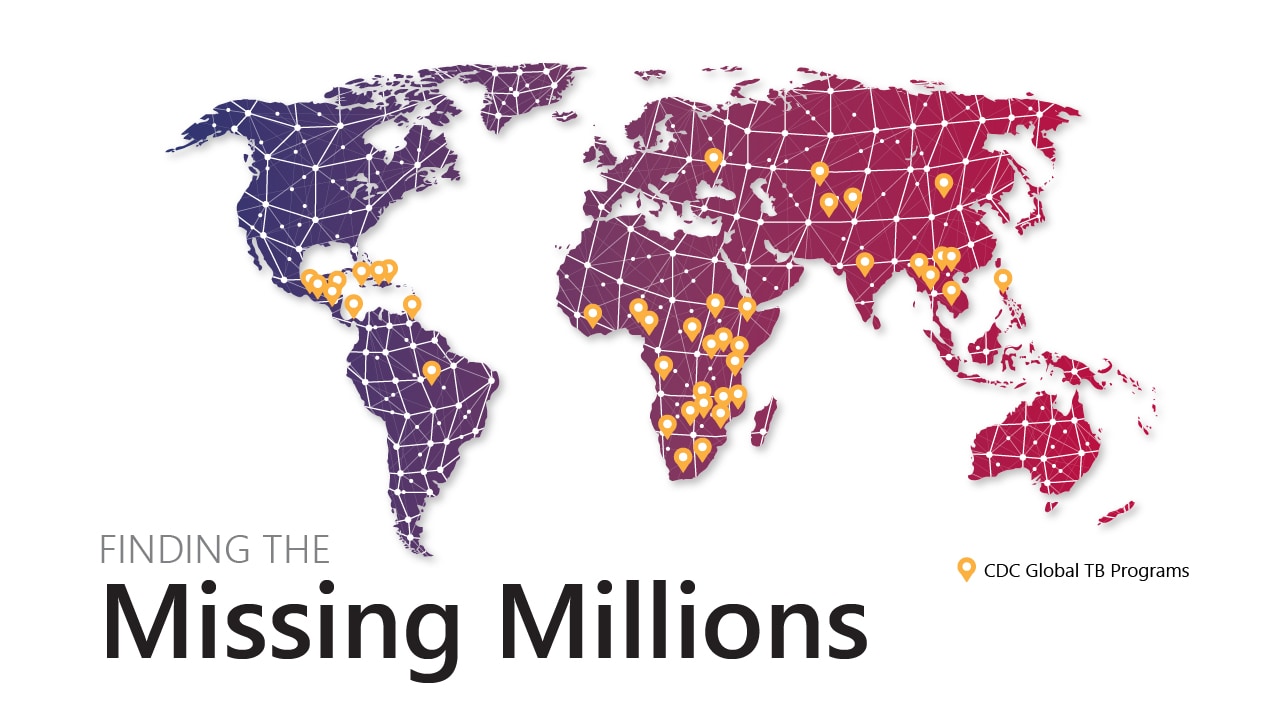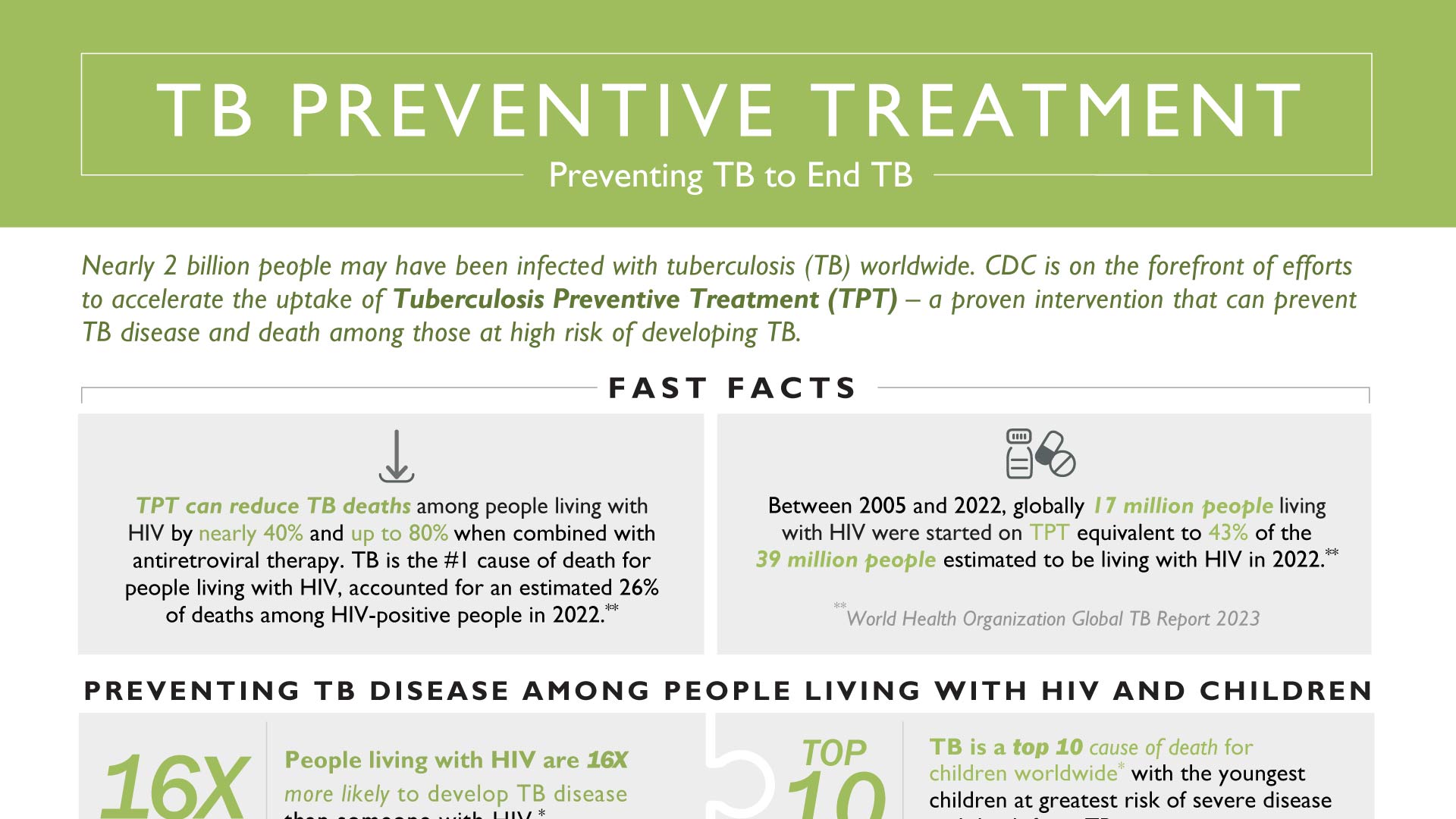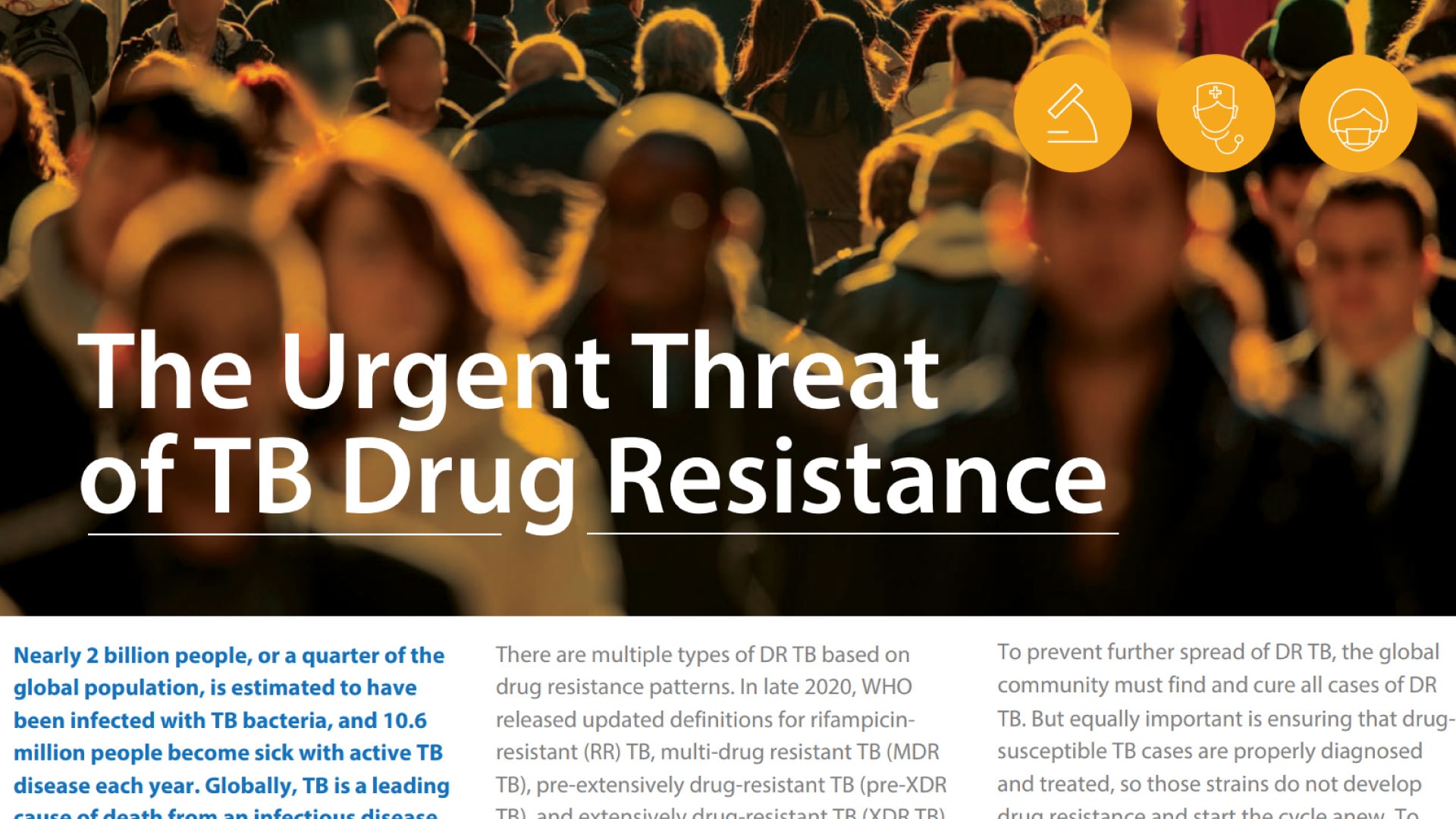At a glance
Overview

CDC and partners work in 42 countries to prevent, diagnose, and treat TB. To make progress, we must address this epidemic in people who are at higher risk and increase access to TB preventive measures. By taking immediate and effective action, we can change the course of the epidemic and make this disease history.
CDC's contributions to ending HIV-associated TB
TB remains the leading cause of death among people living with HIV (PLHIV). CDC is committed to supporting increased access to TB preventive treatment (TPT)—a proven, lifesaving intervention for PLHIV.

What's new?
Learn how CDC and partners are advancing efforts to end TB through research and innovation.




